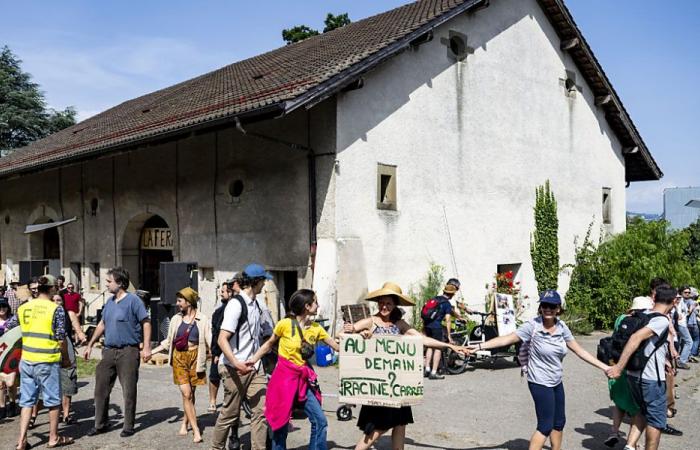The United States has asked the EU to postpone the application, planned for the end of the year, of anti-deforestation regulations. This is due to the difficulties American producers have in complying, Brussels said on Thursday.
This pressure adds to the serious concerns of African, Asian and South American countries, but also of several EU states which are alarmed by the costs for their own farmers, breeders and foresters.
This legislation, finalized at the end of 2022, prohibits from the end of 2024 the marketing in the EU of a series of products (cocoa, coffee, soya, palm oil, wood, beef, rubber, leather, furniture, paper, etc.). .) if they come from land deforested after December 2020.
Prove traceability
Importing companies, responsible for their supply chain, will have to prove traceability via geolocation data provided by farmers, combined with satellite photos.
According to the Financial Times, US Secretaries of Commerce Gina Raimondo and Agriculture Thomas Vilsack, along with US Trade Representative Katherine Tai, sent a letter to the European Commission in late May requesting a delay in implementing the regulation until “critical challenges” faced by US producers in complying with it are resolved.
“Response in a timely manner”
“We can confirm that we have received the letter and we will respond in due course,” a Commission spokesperson told AFP.
“We are actively working closely with all stakeholders to prepare for the application. The Commission is constantly monitoring the situation, working hard to ensure that all conditions are in place for a smooth implementation,” he added.
Soy, wood, paper
Besides soybeans, the most affected U.S. exports are wood and paper – a sector that finds the new rules very complicated because of multiple sources of pulp. Those concerns are widely shared elsewhere in the world.
European Environment Commissioner Virginijus Sinkevicius visited Paraguay, Bolivia and Ecuador in March to try to defuse criticism from these countries regarding the feared impact on their exports to the EU and the technical and financial difficulties for small farmers.
Cacao
In April, he also visited Ivory Coast, the world’s leading cocoa producer, where farmers are equipping themselves with cards containing digital data.
As early as 2023, Malaysia had denounced a “trade barrier restricting free and non-discriminatory access to the market” and called for a postponement of the rules, not ruling out an appeal to the WTO, in unison with Indonesia.
Palm oil
The two countries together produce 85% of the world’s palm oil, a crop that environmentalists accuse of encouraging deforestation of tropical forests.
Within the EU itself, around twenty agriculture ministers from member states, led by Austria and Finland, deplored at the beginning of April “new bureaucratic obstacles” for farmers, risking paralysing investments or “creating distortions of competition” to the detriment of European products.
The EU responsible for 16% of deforestation
The legislation provides that controls target at least 9% of products coming from countries considered to be at “high risk” of deforestation, with those from “low risk” countries benefiting from reduced controls and simplified procedures.
However, in the absence of an already established classification, the Commission could consider all countries as “standard risk” by the end of December.
The EU is responsible for 16% of global deforestation through its imports, according to WWF.
This article was published automatically. Sources: ats / afp


